1. The big winners of the night were the Scottish Conservatives.
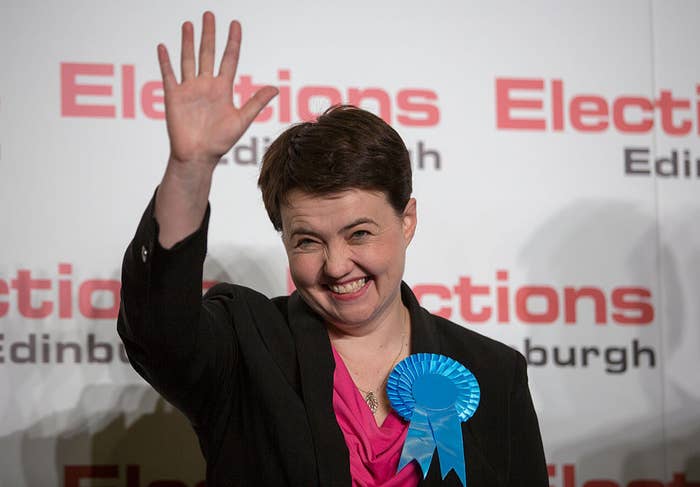
Under leader Ruth Davidson, the Scottish Tories won 22% of the vote, an 8.1 point increase on 2011. The result marks the first time that the Tories have topped 20% in Scotland since the 1992 Westminster election.
Scottish Tories look like getting 22% on both votes. They haven't topped 20% since the 1992 Westminster election
On Thursday, the party won seven constituency seats (a four-seat gain) and, once regional votes were also allocated, ended on 31 seats, 16 more than their previous tally.
Nowhere was the result more dramatic than in Edinburgh Central, where Davidson took the seat from the SNP. She had finished in fourth place in 2011.
Conversely, Labour had a disastrous night in Scotland. Not since 1910 had the party come in third place in Scotland. The question before Thursday’s election was whether Labour had hit bottom in Scotland. The answer to that question arrived in the early hours of Friday: a resounding no.
2. But Labour exceeded (low) expectations in England.
THE I: Corbyn's nightmare before polling day #tomorrowspaperstoday #bbcpapers
Jeremy Corbyn’s party was expected to lose about 150 seats in England. Some experts suggested even greater losses in the region of 170-220 seats. But with 112 of the 124 English council results reported, Labour has lost only 25 seats compared with 2012 (when those same councils were last contested). The party has held on to several councils that were deemed at risk, including Cannock Chase, Crawley, Harlow Redditch, and Southampton. It has so far lost only one, Dudley.
However, if we take a step back and look at Labour's result in the context of an opposition party that aspires to become the party of government, Labour is at the foot of a very large mountain. The bottom line is that not a lot changed this week – and the key data point in that sense is that exactly a year ago, the Conservatives won a parliamentary majority.
In 1996, Labour won local elections by 14 points on a national equivalent share of the vote, and in 2009 the then opposition Tories won by 13 points.
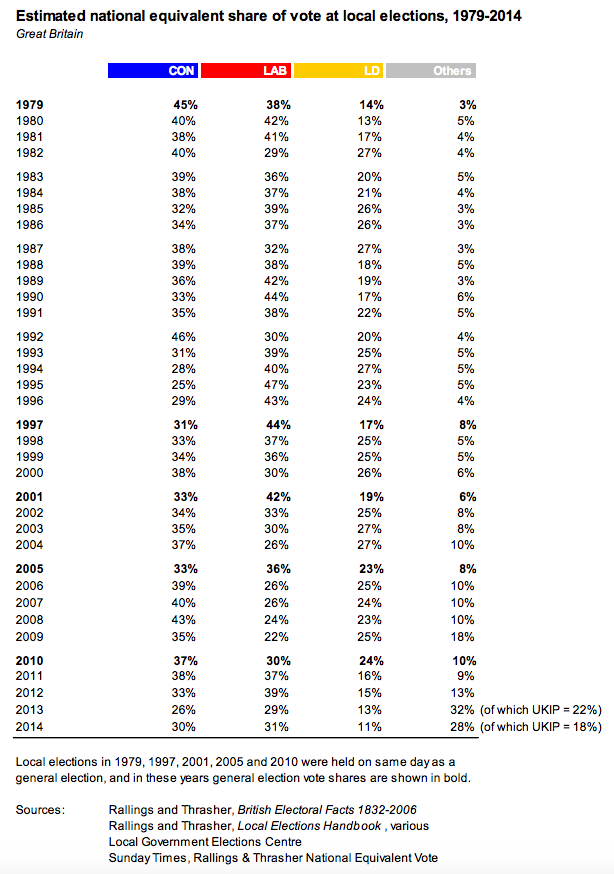
A strong Labour party would be gaining dozens of seats from the Conservatives, and would be winning in places such as Milton Keynes, Watford, Plymouth, Thurrock, Swindon, and Amber Valley.
A nationwide projection of Thursday's results gives Labour a one-point lead over the Tories.
BBC's projected national shares from yesterday's locals Con 30 Lab 31 LD 15 UKIP 12
However, it would be ever so slightly misleading (or naively optimistic) to directly compare these numbers to last May's general election. The same measure in 2014 had Labour on 31% compared with the Tories' 29%. The relationship between those local election results and the implied 2015 general election outcome suggested a Conservative majority.
Compared with 2012, Labour's projected share of the vote is down seven percentage points.
BBC projected national shares (changes vs 2012) CON 30 (-1) LAB 31 (-7) LIB 15(-1) UKIP 12 (not calculated for 2012) 3% Lab to Con swing
3. A remarkable SNP result looks ordinary.
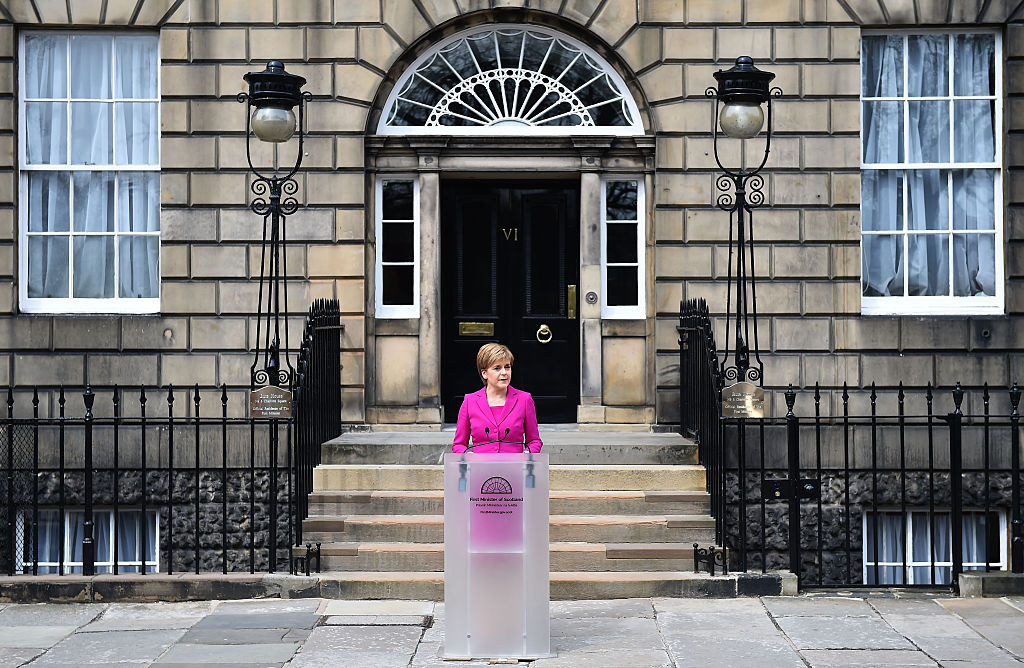
Winning a majority in Scotland is an extremely rare event. It happened only once, in 2011. Five years ago the SNP secured Holyrood’s first ever majority with the biggest victory margin since devolution. On Thursday, the SNP won by an even greater margin, but Nicola Sturgeon’s party lost six seats and by doing so failed to retain its overall majority – and, ultimately, fell short of expectations.
According to Steve Fisher, associate professor at the University of Oxford, “What hurt the SNP in the constituency contests were losses to the Liberal Democrats and especially the Conservatives. The both parties took two seats each directly from the SNP seats, but the Tories also took two Labour seats that would otherwise have been expected to fall to the SNP."
By any measure, the SNP result – and a third term on the trot – are a remarkable accomplishment. It's the equivalent of being Barcelona playing at the Camp Nou, and discovering that anything other than a 3–0 win looks ordinary.
4. UKIP is still gaining.

These elections came at a tricky time for Nigel Farage's party, with most minds focused on the upcoming EU referendum. The party may have not made as much noise as in 2013 or 2014, but in this electoral round UKIP won its first ever seats in the Wales assembly, gained more than 25 councillors in England, and made further inroads in several other areas of the country, including in parts of London such as Bromley.
5. Meanwhile, the Lib Dems show signs of life.
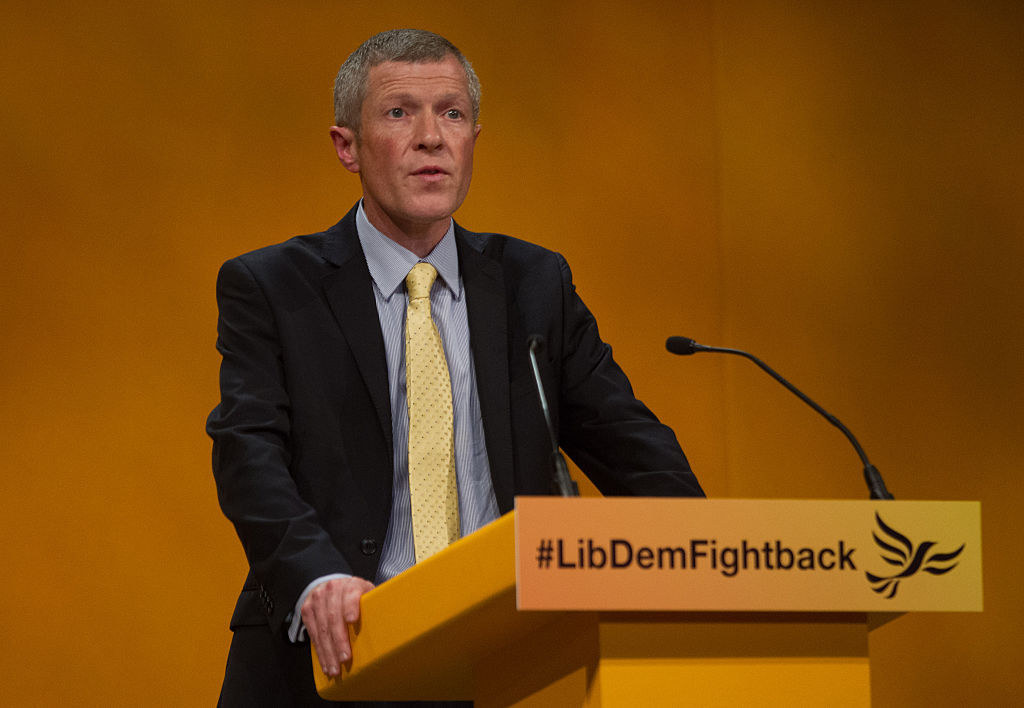
The Lib Dems surprised many with this week's results. The party has shown some signs of life after the disastrous 2015 general election. It has so far gained 38 seats in England – more than any other party.
Lib Dem highlights included winning control of Watford, a key marginal area, and their first council gained since 2009. But the biggest surprise of their election was probably seeing the party's Scottish leader, Willie Rennie, take North East Fife from the SNP. The Lib Dems ended the count with five seats in Scotland, no change on 2011. Some would call that progress.
6. The pollsters strike back.
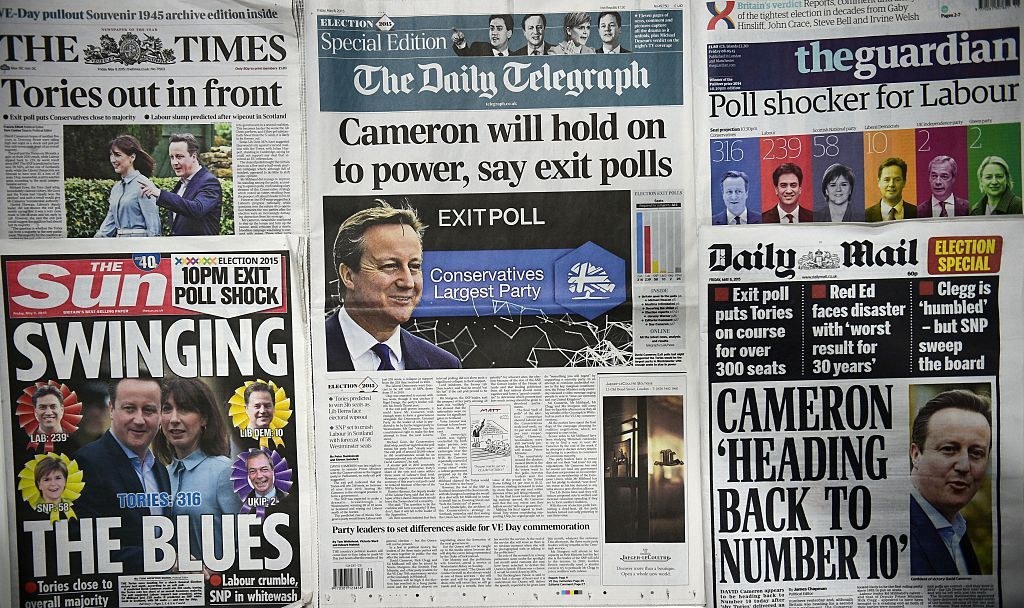
Indications are that Labour candidate Sadiq Khan will comfortably win the London mayoral race over the Conservative Zac Goldsmith by about 13-15 percentage points once all ballots have been counted.
Across the board the results in the capital are in line with YouGov’s final pre-election poll:
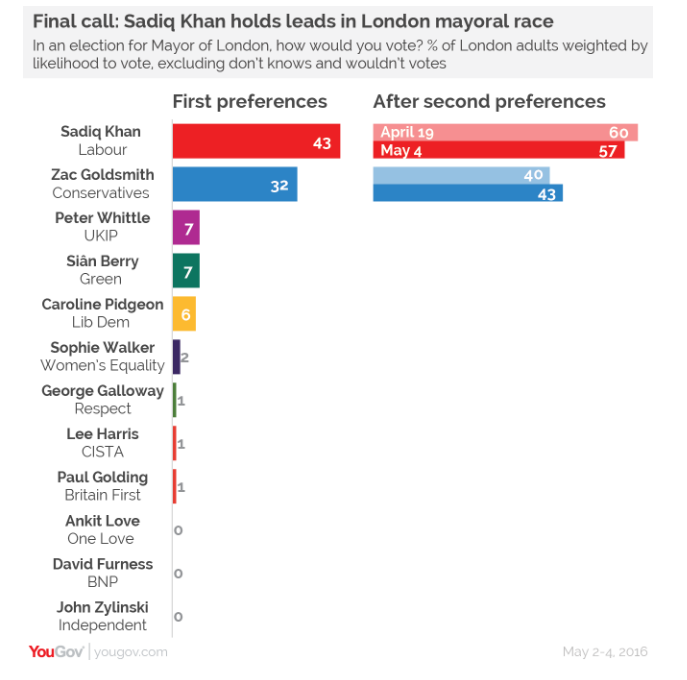
And the other pollsters were expecting a similar result:
Recent #LondonMayor2016 polls all pretty similar. Khan %: ComRes 56 Opinium 57 TNS 57 Survation 60 YouGov 60 Fresh YouGov expected later
In Wales, the polls were spot on. They also did well in Scotland, although all slightly overestimated the SNP and underestimated the Tories by a few points. The polling industry's next test will be the EU referendum. If they're right, based on current numbers, we're in for a close contest on 23 June.
